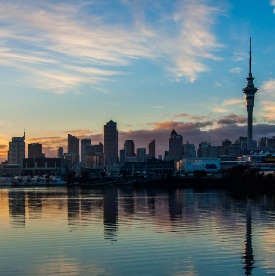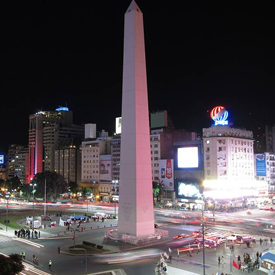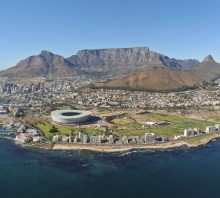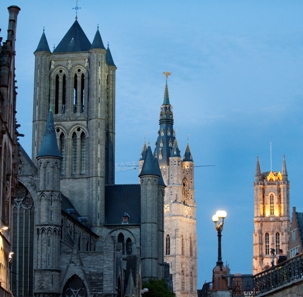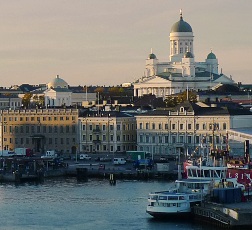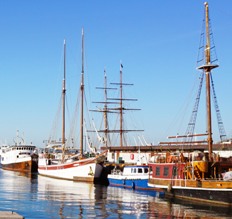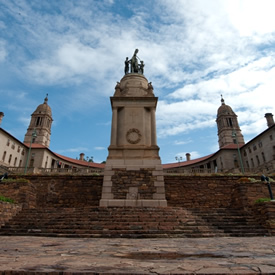LATEST SPOTLIGHTS
Reflecting on COP25: local governments must be engaged in national and international climate action
This December, national governments from across the world met in Madrid (Spain) for COP25 - an annual meeting of the United Nations Framework Convention on Climate Change (UNFCCC), brings together world leaders to discuss key environmental issues and challenges.
In previous years, these negotiations have led to landmark documents such as the Paris Agreement. With rising public calls for climate action, many had high hopes that COP25 would see nations increasing commitments to address the climate crisis.
Unfortunately, this year’s COP did not produce the results some anticipated, with many important decisions being pushed to 2020, when COP26 will take place in ICLEI Member Glasgow (United Kingdom).
Yunus Arikan, Director of Global Advocacy at ICLEI, writes, “Beyond the delayed decision-making, some results were also cause for disappointment, setting us back from progress contained within the ambition of the Paris Agreement, including a weakened call for the next round of nationally determined contributions (NDCs) that doesn’t require any new enhancement of the “ambition” of these goals. Additionally, none of the decisions contained any reference to the role of local and regional governments or to multi-level collaboration.”
Local and regional governments have demonstrated strong commitment to climate action with ambitious goals, and through using partnerships across geographies and with the private sector to ensure these goals translate to results. This commitment to climate action was emphasised and showcased at COP25 through a number of ICLEI initiatives, such as the Global Lead Cities Network on Sustainable Procurement.
Procurement at COP25
The GLCN was represented through its current chair, the City of Tshwane South Africa, as well as fellow members such as the city of Rotterdam, Oslo and Ghent. In selected sessions, the GLCN cities highlighted the power of public procurement tackling the climate emergency. For instance, MMC Dana Wannenburg from the City of Tshwane, explained in a session organised by the Global Covenant of Mayors, how procurement processes can be leveraged to foster collaboration with SMEs to innovate effectively to meet the needs of local climate resilience. Vice-Mayor Arno Bonte, City of Rotterdam, Netherlands, outlined in a session jointly organised by DG Clima, ICLEI Europe and Sitra, the impact public authorities can make when streamlining procurement towards carbon neutrality.
This represents a disconnect – on the one hand, cities and regions are showing leadership on climate action across topics such as nature-based solutions, climate, energy, circular economy, and public procurement, while on the other, negotiations at COP25 did not meaningfully engage them and account for their role.
In response, the Local Governments and Municipal Authorities (LGMA) – a constituency representing local and regional governments at UN climate change negotiations – are calling for “increased climate ambition and action by national governments, including the full engagement of local and regional governments in the preparation of the second NDCs [to be presented at COP26].” ICLEI is the official LGMA Focal Point.
Towards COP26
Local governments must be part of preparing NDCs not only at COP26, but throughout the next year in the preparation of national commitments.
To this end, the LGMA Constituency has set out six key priorities that should be supported by national governments and all other stakeholders. These are:
1. Raise the climate ambition of local and regional governments
2. Ensure NDC preparation is done with ‘vertical integration’ (engagement of multiple levels of government) and transparency.
3. Localise climate finance
4. Take a balanced approach to climate change mitigation and adaptation
5. Link climate action to circular economy and nature
6. Amplify global climate action.
“The second Nationally Determined Contributions (NDCs) to be presented in Glasgow have to reflect the urgency of ambitious action to respond to climate emergency and seize the opportunities of the transformative power of the Urban World. The success of COP26 in Glasgow in 2020 depends on the full engagement of local and regional governments in the preparation of the second NDCs at home throughout the year,” said Ashok Sridharan, Mayor of ICLEI Member Bonn (Germany) and President of ICLEI.
Next year, negotiations will make their way to Glasgow. Susan Aitken, Leader of Glasgow City Council, attended COP25 in Madrid, and reflected, “Cities need to influence and shape the climate agenda. That’s what we’re going to take on in Glasgow, that is what we’re already taking on here… That, however, is still an argument to be won.”


